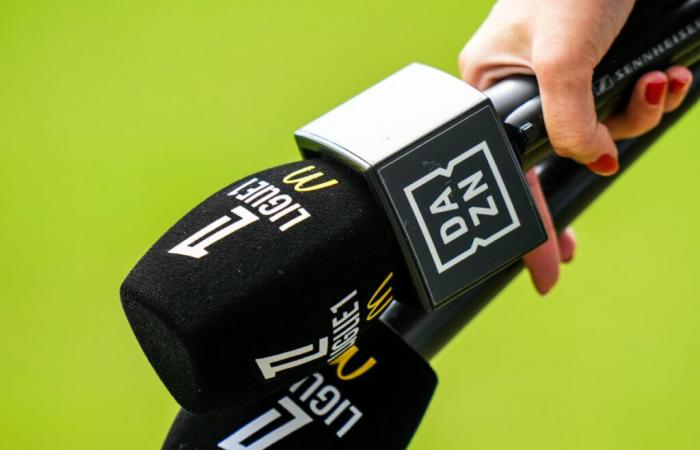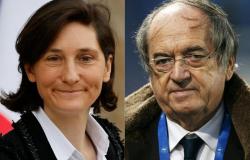Since its sensational entry into the French market, DAZN has struggled to establish itself as the main broadcaster of Ligue 1, despite a contract worth 375 million euros to broadcast eight of the nine matches each day. To date, the platform has attracted only about 500,000 subscribers, a figure well below DAZN CEO Shay Segev's predictions of between one million and 1.5 million subscribers six months after launch. . The stagnation in the number of subscribers reflects the difficulties in establishing the brand, despite an ambitious advertising campaign and price reductions.
This situation has sparked numerous criticisms, including those from former international rugby player Hugo Bonneval, who did not mince his words regarding DAZN's policy on the show “L'Equipe choc”. “Their approach was poor, even catastrophic,” he declares, deploring a strategy ill-adjusted to the financial realities of French households. “Putting such a price to only access Ligue 1, when the financial situation is difficult for many French people, it’s complicated. » Indeed, the cost of the subscription was considered high by many consumers, and although DAZN has since offered discounts, some subscribers who paid the initial full price felt shortchanged.
DAZN’s huge flop for OM-PSG!
The Marseille-PSG meeting, one of the most anticipated matches of the championship, was to mark a turning point for DAZN and bring it a peak in subscriptions. However, despite the media coverage of this event and the promotions offered, the “Classic” did not generate the hoped-for success. “This match, announced with a lot of publicity and promotions, did not have the desired effect,” reports in L’Equipe, a source close to DAZN. While the broadcaster was banking on around 90,000 new subscribers, the operation failed to attract this additional audience.
Worse still, piracy, a major scourge for broadcasters, weighed heavily in the balance. More than 150,000 people followed the match illegally via platforms like Telegram, illustrating the scale of this problem in France. DAZN tried to combat this phenomenon, but its efforts were clearly not enough to prevent large-scale illegal distribution.
For Bonneval, DAZN's failures are not limited to questions of price and piracy: the quality of the programs is also a subject of controversy. “What they offer is not extremely qualitative. Putting comedians on the edge of the pitch, I find it dramatic,” he explains.
Comedians are replacing sports journalists!
He said sports coverage should provide enriching content for sports fans, not just a distraction. “When we love sport, we expect information, anecdotes, not jokes,” he insists. Bonneval, who is not a Football fan, underlines the importance of authentic and much more professional commentary to immerse the spectator in the world of the match and provide him with a unique point of view. On the other hand, DAZN preferred to include comedians on the sidelines, an approach which confused many sports fans looking for expert commentary. “If I want jokes, I’ll see a show,” he adds, expressing here the feeling of frustration shared by many spectators.
This series of obstacles is beginning to wear thin on the patience of Len Blavatnik, the billionaire owner of DAZN. With such a significant investment in French football, the results are slow to appear, while the losses linked to piracy further weaken this economic model. If it does not reach the milestone of 1.5 million subscribers by December 1, 2025, DAZN could invoke a clause to terminate the contract at the end of the 2025-2026 season, well before its initial term planned in 2029. This same date of December 2025 also constitutes a deadline for the Professional Football League (LFP), which could choose to break the partnership if DAZN does not reach the planned number of subscribers.
DAZN soon to be replaced by a new channel?
In this scenario, the LFP would be forced to look for a new broadcaster, which could prove complex. Amazon Prime Video, which already broadcast Ligue 1, quickly reached 1.7 million subscribers during its first year in 2021. Despite its financial difficulties, Mediapro, for its part, reached 600,000 subscribers with its Téléfoot channel, without even benefiting from the support of Canal+, unlike DAZN. If no broadcaster agrees to take over the contract, the LFP could be led to consider launching its own broadcasting platform, a risky project in terms of infrastructure and management costs, but which could offer it increased control over broadcast revenue.
For the moment, DAZN seems caught in a vicious circle: the aggressive pricing strategy has certainly made it possible to increase the audience, but the high level of piracy and the mixed reception of the content produced continue to harm its prospects. The LFP, for its part, could quickly find itself in a delicate position if DAZN's performance does not improve. The latter would then have represented a costly gamble for French football, but a potentially short-lived one.






